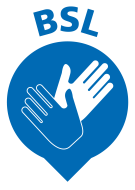Q: What should people do if they need an ambulance?
A: People should only call 999 if there is a risk to life, or if seriously ill or injured. Ambulances will be dispatched where clinically appropriate.
For all other health care needs, support will be available at www.111.nhs.uk or at a local GP surgery or pharmacy.
Q: What is considered an emergency, and will my 999 call be answered?
A: Patients should only call 999 if there is a risk to life, for example, a cardiac arrest, unconscious or catastrophic bleed, or if seriously ill or injured such as a stroke or a serious traumatic injury. Ambulances will be dispatched where clinically appropriate.
Q: How many fewer ambulances will you have responding to emergencies in the North East?
A: It is not possible to say how many colleagues will be participating in industrial action as it is a personal decision made on the day of action by individual members of the trade union which has the mandate to strike.
We have been working with our local and national trade union representatives to agree exemptions for patients which some Unison, GMB and Unite members may still attend during the period of industrial action.
However we are clear that we will not be able to respond to all calls of a serious nature and there are likely to be significant delays in response for patients who have to less serious illness or injury.
Our priority is to ensure the safety and wellbeing of all our patients and staff. We have planned with great care for this strike, but our services will be extremely busy and we do expect them to be severely disrupted.
Q: If the ambulance is taking a long time to arrive, what should I do?
A: It is likely to take us longer than normal to get to patients on days of industrial action because there will be fewer ambulances available.
Our 999 control rooms will carefully assess and prioritise an ambulance response for those who need it most, and this may only be where there is a threat to life or limb.
You may be asked to make your own way to hospital or a medical treatment centre if it is safe to do so.
If you are waiting for an ambulance, please do not call 999 again to ask for an updated estimated time of arrival for an ambulance.
You should only call 999 again if you wish to cancel the ambulance because you are making their own way to hospital, or if the patient’s condition has significantly worsened.
Q: Will my non-emergency patient transport be impacted?
A: Only essential Patient Transport Services (PTS) journeys will be happening on 11 January. This will be for essential appointments to dialysis, chemotherapy, cardiology or oncology.
Our PTS planning teams have been working with hospitals and clinics to identify essential journeys and cancel those journeys which do not meet the essential criteria.
Patients will be contacted directly by the hospital or the ambulance service to inform you of a cancellation.
Hospital discharges will be prioritised to ensure hospitals and emergency ambulances have capacity to receive life-threatened patients.
Q: Do I need to cancel my transport and hospital appointment for the days of industrial action?
A: No, patients should expect their booked transport to arrive as normal and should attend their appointments as normal, unless contacted directly by the hospital or the ambulance service to inform you of a cancellation.
Q: If staff are already on shift and treating a patient when the industrial action begins, will they just stop working?
A: If delivering patient services, staff must complete the patient call they are on before they are permitted to stand down; this includes in call centres as well as direct patient care.
Q: Will you be receiving support from the military?
A: We are using 20 military personnel to support with the transportation of low acuity patients and our discharge service
Q: Where will the picket lines be held?
A: Picketing is likely to take place at the ambulance stations across the North East where union members who are participating in industrial action are based.
Q: Can members of the public join the picket lines?
A: No - not as part of official picketing.
However, they could be present and exercising their human right of protest despite not being part of the official picket.
The Code of Practice on Picketing states ‘anyone seeking to demonstrate support for those in dispute should keep well away from any picket line so as not to create a risk of a breach of the peace or other criminal being committed on that picket line.’
Q: Can NEAS pay its staff more money and stop the strikes?
A: No, NHS Agenda for Change pay levels are agreed at a national level and not locally. This is a dispute between the Government and unions over the 2022-23 pay award.

